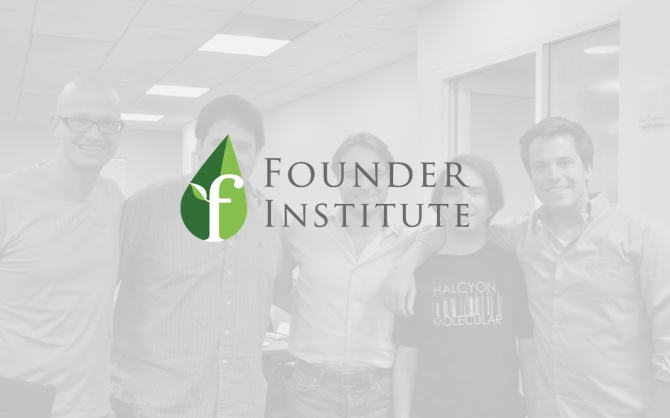
As The Next Generation of VCs enter the market and look to build enduring venture capital firms, they should be aware of which types of limited partners to focus on when marketing their new venture firms.
Not all LPs and investors in venture capital firms are the same. Each type of LP has its own preferences, so you should take these into account when marketing your venture firm. For example, large institutional LPs such as endowments rarely invest in new venture fund managers and their firms. Since such institutions manage vast sums of money, it is un-optimal for them to write small checks and have small VC firms in their portfolios. Large institutions also have very lengthy procedures and are relatively slower than their counterparts.
Typically, you may find that HNWIs and Family Offices are the best sources of capital for new venture capital firms and as such we will mainly direct our focus into those two categories in this article.
Table of Contents:
-
High Net Worth Individuals
-
Family Offices
-
Corporates
-
Institutions
-
Summary
Each of these types of LPs has a subset of differing profiles. When targeting them, fund managers should tailor their pitches and consider the LP’s appetite for risk or lack thereof. Additionally, factor in the LP’s preferred investment stage as well as the markets they want exposure to.
It may be a waste of the fund managers’ time if several essential prerequisites are not aligned. Therefore, it is vital to establish an alignment of said criteria early on to conduct efficient fundraising.
High Net Worth Individuals
HNWIs are wealthy people who typically manage and allocate their own capital into assets. This group of individuals is hard to pin down into a single profile, and their goals may differ considerably.
You may find that successful entrepreneurs who have had exits in the past are much more willing to back new fund managers and firms. Angel investors are a good avenue for new fund managers too, as they also have exposure to the asset class and understand the risks and returns. High-ranking individuals within adjacent corporate investment and finance sectors may also be receptive and open to having some exposure to the asset class in an effort to diversify their assets.
Overall, HNWIs are great backers for new firms and are more likely to back new fund managers relative to the other class of limited partners. Comparatively, they are more likely to come into a first close for the firm. Their ticket size is very dependent on the individual, but they are much more efficient in writing checks than large investment offices, corporate businesses, and institutional investors.
When targeting them, it may be best to find LPs who are experienced in the firm’s focus segment. This way, such an individual will be familiar with your domain of expertise and ability to evaluate your thesis, thus take much less convincing. They will also be able to support portfolio companies and add value post-investment.
Family Offices
Family offices are wealth advisory firms that exclusively serve families or ‘Ultra High Net Worth Individuals’. These offices are set up to fulfill an extensive range of services for said families and individuals, who typically have a net worth of over $100m, as to necessitate the formation of a family office. Such family offices vary in size, focus, sophistication, and other factors.
‘Single-Family Offices‘ conventionally manage the wealth of a sole family/individual so are highly tailored and focused on a particular family’s requirements.
‘Multi-Family Offices’ manage the capital of multiple sources and so staff work across multiple accounts and families. Since they have multiple clients, they can cater to individuals with less capital and have a broader focus and set of services.
Family offices are great LPs to focus on for new managers as they are much more willing to be the first checks into backing new and emerging fund managers.
Region and the size of the family office play a large role in the likelihood of said offices backing new fund managers as not all family offices invest in venture capital.
In terms of strategy, some family offices tend to be oriented around wealth preservation. They are less likely to invest in the venture capital asset class and new/emerging fund managers. Typically, European family offices tend to have a wealth preservation focus, while those in the US have a more aggressive strategy that favors venture capital.
Small family offices are more likely to back new fund managers and are more efficient in writing checks and coming into a first close, while much like large institutions, large family offices are less likely to do so.
Corporates
Corporate businesses/investors are not very likely to back new fund managers. Efforts to convince corporates typically do not yield a positive outcome in the short term unless the business is looking to enter a particular niche via the venture firm. The process of getting funding from a corporate business is also much longer than most LPs. Since most large businesses are relatively slower in writing checks for VC firms, the fund manager has to navigate a very arduous and bureaucratic process.
New fund managers should focus on LPs with a higher probability of success when launching their enduring venture firm.
Institutions
There are multiple subsects of institutional investors. Fund of Funds for example have specifically been raised to invest in venture capital firms. These institutional investors are not likely to invest in new fund managers without a track record of success and outsized returns. However, there are some FoFs that specialize in micro-funds with new managers, which may yield a positive outcome. If targeting FoFs, fund managers should specifically target ones with similar strategies which suit the firm’s thesis.
Other institutional institutions are also not likely to invest in new or emerging venture firms. Overall, institutional investors have a lengthy and challenging process to writing checks and new fund managers should not spend too much time pursuing them.
Summary
New fund managers may want to focus on HNWI and small family offices when fundraising and closing their first fund. Larger institutional and corporate investors in venture capital firms often have lengthy procedures and require a track record of success.
Relationships with larger investors and institutional bodies should be built over time and maintained. Consequently, it is prudent to be in communication with said LPs and develop a relationship early on, even though said LPs are not likely to invest in new firms. Many GPs and founders often have a binary approach to fundraising and it is better to continually nurture relationships with potential investors and keep them updated on your organization’s progress, as they may come into later funds of the venture firm.
A large percentage of new funds’ LPs are comprised of HNWI and small family offices, so fund managers should spend a proportional amount of time with those LPs, rather than large institutional investors.
When targeting potential LPs it is a good idea to find a regional fit. Much like venture capitalists many limited partners exclusively invest in their own domains of expertise; therefore finding an alignment may go a long way to getting funded too. If the LP has previously backed VC firms, there is a considerably higher chance of interest. On the other hand, if said office has never backed a VC firm, it might be prudent not to spend a significant amount of time convincing them
* * *
This content is provided by VC Lab (https://GoVCLab.com), the venture capital accelerator.
The free 14 week VC Lab program provides guidance, structure and a network to complete a fund closing in 6 months or less. Since mid 2020, VC Lab has helped launch over 100 venture capital firms around the world.
Apply to Cohort 8 of VC Lab here (https://FI.co/apply/vc). The Final Admissions Deadline is Sunday, August 14th, 2022.
Follow VC Lab on LinkedIn and on Twitter to learn more.
* * *


